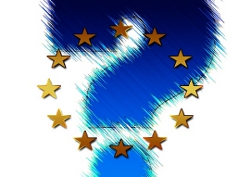 The prevalence of Euroscepticism within the UK electorate is widely claimed yet Stuart Fox argues that it is not borne out by the facts. The nature of such attitudes is more complex than the Europhile/Eurosceptic dichotomy suggests and their distribution varies across demographic groups.
The prevalence of Euroscepticism within the UK electorate is widely claimed yet Stuart Fox argues that it is not borne out by the facts. The nature of such attitudes is more complex than the Europhile/Eurosceptic dichotomy suggests and their distribution varies across demographic groups.
Endless speculation about the rise of UKIP, the threat they pose to the chances of the Tories or Labour forming a majority government after 2015, and the desperate need of both parties to woo the British ‘Eurosceptic vote’, have become an almost daily feature of British political commentary in the last year. But is the British electorate really as unified in its Euroscepticism as this debate would suggest?
Data gathered from multiple sources casts doubt over such claims – and in particular, such claims fail to note the generational differences amongst the British electorate. For example, the British Election Study for 2010 shows that at the time of the last General Election, 22 per cent of 18–24 year olds could be called ‘Eurosceptics’; that is, they disapproved of Britain’s relationship with the EU. The next age group, 25–34 year olds, held virtually identical views, after which anti-EU sentiment became more prevalent with age, finally reaching a peak in the over-65s, more than half of whom were Eurosceptic.
Data from the Eurobarometer series confirms that young people have been less likely to be Eurosceptic than their elders for some time. The graph below demonstrates the fluctuating fortunes of Euroscepticism amongst the electorate – rising, then falling, then rising again – and it shows the differences between the percentage of 15–24 year olds and the rest of the electorate holding Eurosceptic attitudes. In 1975, there was almost no difference between the two groups, but the gap has been growing steadily since – and by 2010 reached 19 per cent.

_
The differences in attitudes towards the EU, however, do not stop at ‘europhilism’ vs ‘euroscepticism’. Young people also hold distinct views of the influence of the EU. The Hansard Society’s Audit of Political Engagement series asked in four separate surveys – in 2003, 2006, 2009 and 2010 – which institutions had the greatest influence over daily life. Taking the four together, on average 9 per cent of 18–24 year olds identified the EU as having substantial influence over daily life, compared with 26 per cent of over 65s.
In a time of increasing globalisation and declining influence for national governments, the perceived influence of trans-national institutions such as businesses and the EU can be of great importance to voters; such perceptions could well be at the root of differences in affection for or hostility towards the EU among different generations of the British electorate (see here for a further blog post on globalisation and the consequences for governments).
Another observation from the graph is the instability of Eurosceptic attitudes. There are several periods during which Euroscepticism fluctuated substantially in a relatively short time-frame, suggesting that attitudes on Europe are fairly malleable and could be quite responsive to political events (such as the effect of Europe on John Major’s government and the Maastricht Treaty).
What does this mean for Euroscepticism in Britain, and for the political parties hell-bent on mopping up (or at least not losing) the Eurosceptic vote in 2015? First, despite the regular citing of opinion polls in the press and the claims of Eurosceptic politicians suggesting otherwise, the British electorate is not unified in its hostility towards the EU. Politicians and political parties believing that they are representing the majority of Brits in their Euroscepticism may wish to reconsider; they may be alienating more voters than they realise, particularly the younger sections of the electorate.
Second, given the instability of attitudes towards the EU, and the fact that – despite this instability – young people have become less likely than their elders to be Eurosceptics since 1980, it is far from clear that Euroscepticism is here to stay. It is possible that the demands for anti-EU sentiments from politicians will wane over the coming elections as the older, more hostile, members of the electorate are replaced by younger voters more supportive of – or at least less hostile towards – Britain’s relationship with the European Union. It is also possible, of course, that young people’s attitudes may change; they may suddenly become more Eurosceptic if political events prompt them to do so (as in 1985), or, as they age and become more exposed to the EU, come to share the view of their elders that the EU is more influential in daily life than they realised.
Either way, it is possible that politicians may soon find themselves back-tracking in their attempts to outflank each other on Euroscepticism, and be forced into developing newfound enthusiasm for the EU to keep pace with the beliefs of the voters. Britain’s parties would be unwise to count on Eurosceptic attitudes becoming a common feature of the British electorate.
_
 This post is part of a collaboration between British Politics and Policy, EUROPP and Ballots & Bullets, which aims to examine the nature of euroscepticism in the UK and abroad from a wide range of perspectives. Read more posts from this series.
This post is part of a collaboration between British Politics and Policy, EUROPP and Ballots & Bullets, which aims to examine the nature of euroscepticism in the UK and abroad from a wide range of perspectives. Read more posts from this series.
_
Please read our comments policy before commenting.
Note: This article gives the views of the author, and not the position of EUROPP – European Politics and Policy, nor of the London School of Economics.
Shortened URL for this post: http://bit.ly/14UrsAH
_________________________________
About the author
 Stuart Fox – University of Nottingham
Stuart Fox – University of Nottingham
Stuart Fox is a 2nd year PhD student at the University of Nottingham. His research interests include British politics, young people and political participation, and political engagement.






British youth is pro European Union – what does Cameron say?
http://kielspratineurope.eu/?p=1176
When will england stop living the past and realize we are a European nation and unity is strength
No other cou ntry in Europe wants to leave the EU
“We don’t feel very comfortable being a kind of province in the European super-state,” Geert Wilders. Many British feel the EU to be far too bureaucratic and infringes on their personal liberties, also there is widespread waste of EU spending and corruption.
Do you have any evidence that there is “widespread corruption” in EU spending? Actual evidence, that is, not the misleading sound bite about the Court “not signing off the EU’s accounts” (which isn’t evidence of corruption at all).
Oh right, the auditors not signing off the EU accounts for many years thats not corruption, lets call it creative accounting. The travelling circus of the Brussels to Strasbourg seat, thats not wasteful?
It isn’t proof of corruption – that’s a myth that gets endlessly repeated by Eurosceptics and British newspapers without clarifying what the Court’s judgement actually means. In fact the Court explicitly states that it does “sign off” the accounts now (and has done since 2007), so aside from anything else, it’s completely outdated.
None of which is to say that the management of EU funding couldn’t be improved – just as UK financial management could also be improved. However that’s a completely different thing from saying there’s “widespread corruption” in how EU funds are currently used. Reducing complex issues like this down to silly sound bites is just a nonsense.
The assertions may be technocratically correct,but are by many long-term observers certainly found not credible.The whole EU show has increasingly an Alice in Sonderland looking through the darkly gloss about it.
Eu does not interfere in daily life and if it does how and where. If uk leaves it will find out it was wrong as usa puts it it would be a mistake for uk to leave eu and eu migrants leave but what if uk expats get removed they will come back here and the problems will be still here and only difference will be government, newspapers and people cannot blame eu